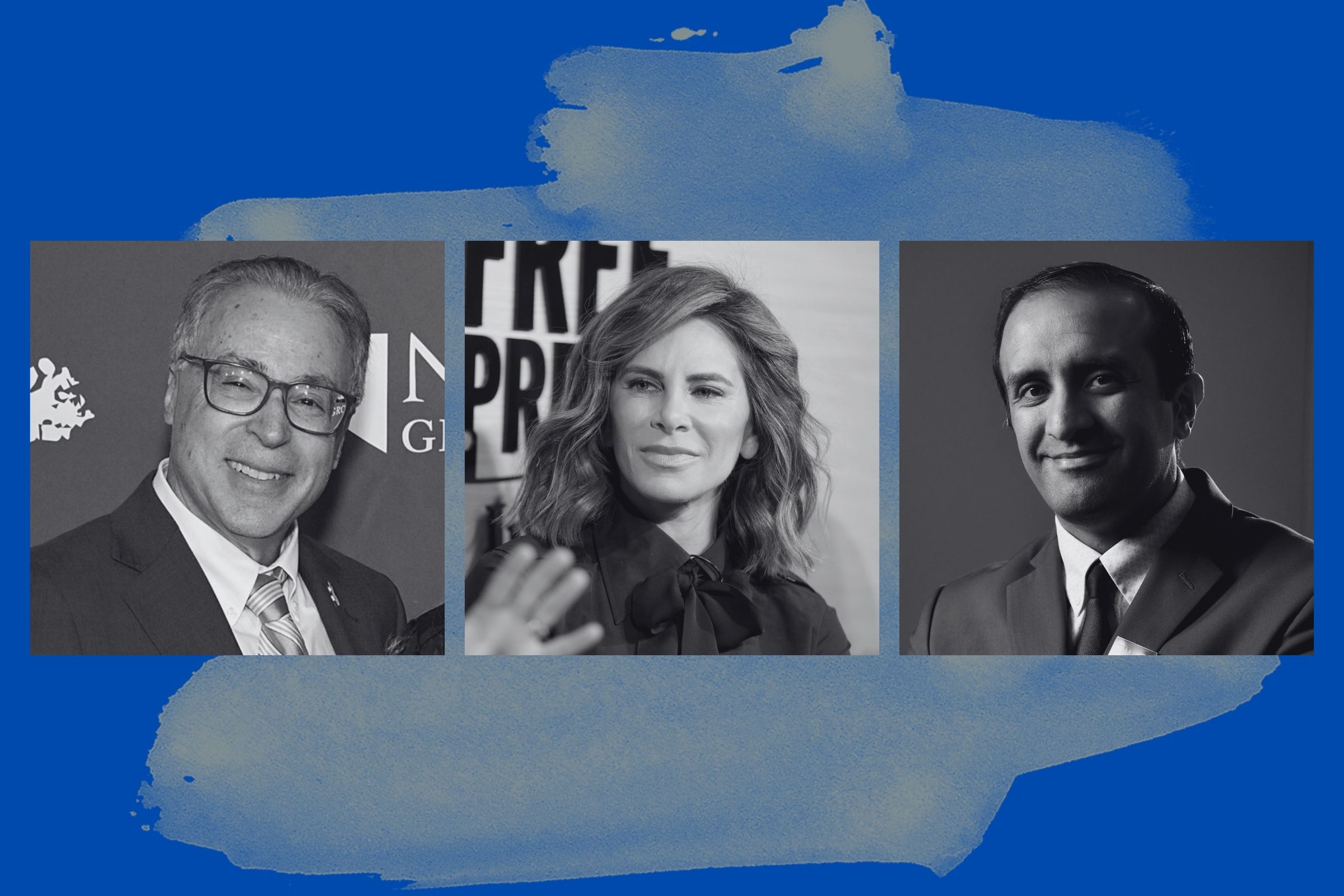Three panelists engaged in a spirited discussion about longevity and disease prevention at a TIME100 Talks event moderated by TIME senior health correspondent Alice Park in New York City on Wednesday.
Dr. Raj Panjabi, senior partner of the bioplatform innovation company Flagship Pioneering, leading its Preemptive Health and Medicine Initiative; Jillian Michaels, creator of The Fitness App and host of the podcast Keeping It Real: Conversations with Jillian Michaels; and Dr. Nir Barzilai, director of the Institute for Aging Research at the Albert Einstein College of Medicine and president of the Academy for Health and Lifespan Research, joined Park on stage to discuss topics ranging from vaccines to weight-loss drugs.
[time-brightcove not-tgx=”true”]
During the conversation, Park asked Panjabi, who previously served as White House Senior Director for global health security and biodefense during the Joe Biden Administration, about growing mistrust in vaccines in the U.S. Panjabi emphasized that it’s important to approach any claim made about vaccines “with curiosity” and “help folks understand the science.”
He said, for instance, that scientists learned that the COVID vaccine was more effective at preventing hospitalizations than it was at preventing infection. In the first two years after the COVID vaccine was distributed in the U.S., more than 18 million hospitalizations and more than 3 million deaths were prevented, according to a 2022 report from The Commonwealth Fund.
“The takeaway that I have, from the work of vaccinations, is that it is still a proven, effective intervention. It’s worth studying them, continuing to study them, but then it’s worth actually looking at the data,” Panjabi said.
Park went on to ask Michaels what questions she has about the safety of vaccines, in light of a post on X in September in which she said, “If we can recognize the undeniable success of vaccines historically, why is it treated as dangerous or taboo to raise legitimate questions about how we use them today?”
Michaels has sparked controversy in the past for expressing support for the Make America Healthy Again (MAHA) movement, led by prominent vaccine skeptic and Health and Human Services Secretary Robert F. Kennedy Jr. A New York Times story published over the summer described Michaels as “concerned vaccines haven’t been studied vigorously enough (though she does not consider herself broadly anti-vax).”
Michaels replied that her questions weren’t necessarily about safety but about some aspects of the vaccine schedule. She criticized the fact that the Centers for Disease Control and Prevention (CDC) recommends that the first dose of the hepatitis B vaccine, which protects against a highly infectious disease that can damage the liver, is given at birth.
Critics, like Michaels, have questioned why a newborn should be vaccinated against a virus that can be transmitted through unprotected sex or shared needles. “Parents want to know these things,” she said. (Public health experts have emphasized that the sooner the vaccine is administered, the greater the chances of preventing early childhood exposures, including mother-to-child transmission of hepatitis B.)
Panjabi said that a key part of recommending any medical intervention—whether that be vaccines or drugs—is whether the benefits outweigh the risks. He urged people to have respect for one another when engaging in those discussions.
Park turned the conversation to GLP-1 weight-loss drugs, asking Barzilai if they are a good thing, to which he replied “definitely yes.” He said that “obesity accelerates aging,” so treating that can address that issue. And he cited new research that suggests that GLP-1 weight-loss drugs may have other positive health effects, such as reducing the risk of Alzheimer’s disease.
The topic sparked a question from an audience member. Andrea Deierlein, director of Public Health Nutrition and associate professor at the New York University School of Global Public Health, expressed concerns that the drugs could be used to replace other aspects of a healthy lifestyle. Barzilai replied that exercise, diet, sleep, and social connectivity are “good for everyone,” but as people age, it becomes harder to “optimize” those aspects of a healthy lifestyle.
“What we determined is that there are drugs that could, when you’re old, change the rate of your aging,” Barzilai said. But, he said, in a conclusion that spoke to the state of play across the topic: “How we’re going to do it and to whom is still a discussion.”
TIME100 Talks: Living Better, Longer—Reimagining Healthcare from Sickcare to Wellcare was presented by Shaklee.

